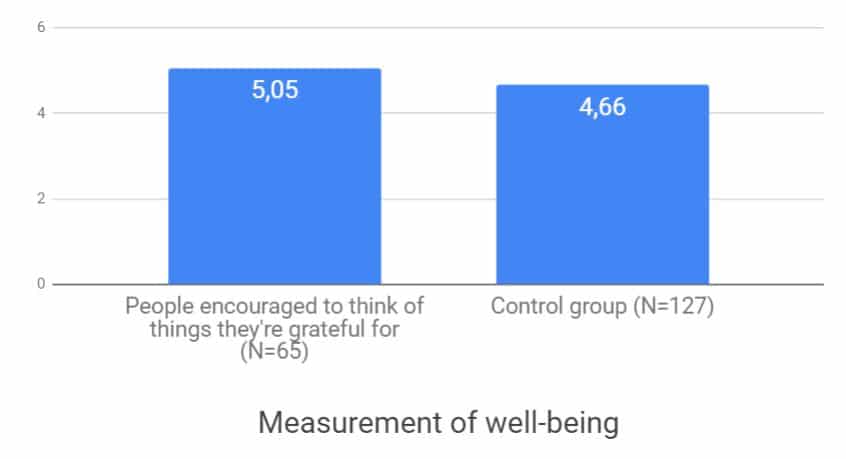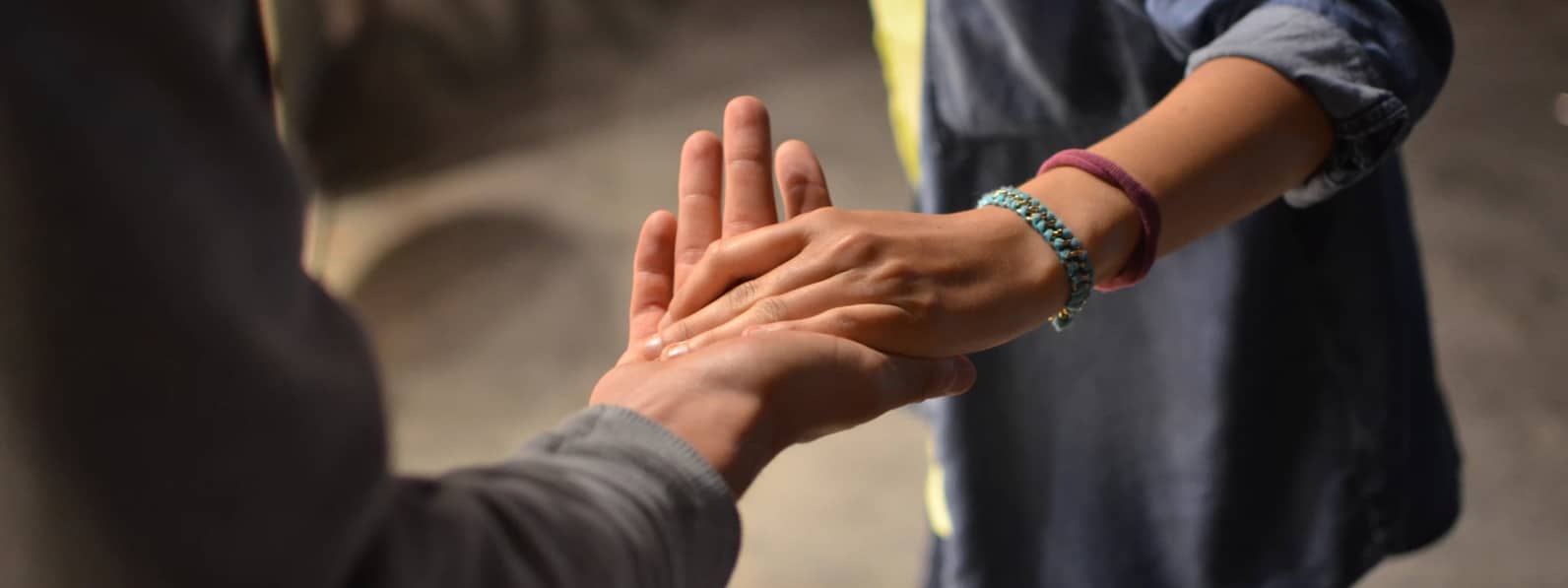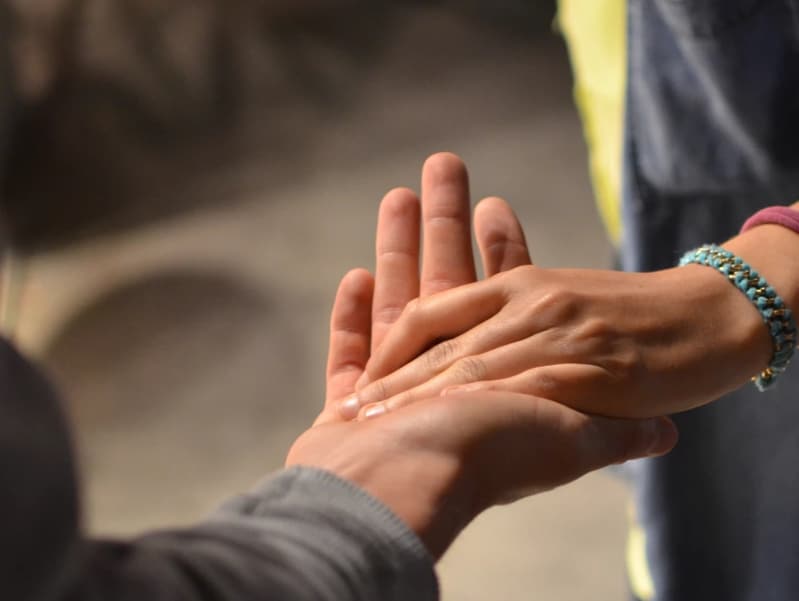You’ve probably experienced the following situation before: You are feeling moody, unhappy and restless without having a direct reason for it. What to do? You go online and google things you can do to get rid of this feeling. Every single article out there mentions this vague “being thankful” thing. What’s up with that?
Gratitude is strongly correlated to positive emotions and good experiences, and the reason why is very simple to explain. When you are grateful, you are remembered of positive events and experiences in your life. Being grateful for these things allows your mind to think of these positive events, which encourages a positive mindset. A positive mindset is scientifically proven to be a factor of long-term happiness.
This is just one explanation of how gratitude makes us happier. In this article, I’ll show you 3 examples of why being grateful makes us happy, with actual examples from different people I’ve met over the years.
Contents
So how does gratitude lead to happiness? There are two ways to answer this question: by showing the results of actual studies on the topic and by showing you multiple anecdotal examples.
Research on gratitude and happiness
One of the most well-known studies on gratitude was conducted in 2003 by Robert Emmons and Michael McCullough. They conducted a study in which they surveyed 192 participants – split into 3 groups – that were subjected to different situations. They were all asked to rate how they felt via a combination of 30 factors at the end of each day on a scale from 1 to 5. The answers were used to calculate a subjective well-being rating.
In addition, the 3 groups were tasked with an additional task as well, which differed randomly per participant. One of the groups was led to think about positive things as a result of the following assignment:
“There are many things in our lives, both large and small, that we might be grateful about. Think back over the past week and write down on the lines below up to five things in your life that you are grateful or thankful for.”
The other 2 groups were given other assignments, which had nothing to do with gratitude, thankfulness, or gratefulness at all. In the end, participants that were “forced” into a grateful mindset felt better about their lives as a whole and were more optimistic about their life in the near future.
This is how the 3 groups were measured on the subjective well-being scale.

The study shows that people who are encouraged to think of things they’re grateful for are approximately 10% happier than those who are not.
Can thinking about gratitude make you happier?
This might not sound like a lot at first, but when talking about happiness, mood, and subjective well-being, this is a very significant result. See, things like happiness and mood are extremely hard to measure and define. The measurement of subjective things like these is distorted in a lot of ways, like biases, different measuring scales, and wrong interpretations to name a few.
The researchers have done a great job to eliminate as much of the distortion as possible, but this makes it difficult to gain any definitive conclusions from these studies.
Thinking about things to be grateful for accounted for an increase of 10% in happiness. A 10% increase in happiness as a result of practicing gratitude is very big in my opinion.
- That’s why people are so serious about practicing gratitude.
- That’s why gratitude journals are so trendy these days.
- It’s why I am writing this article today about the ways in which gratitude can make you happier! 🙂
Examples of how gratitude makes us happier
Academic papers are sometimes more difficult to understand than a simple anecdote. That’s why I wanted to include a couple of actual examples here, just to show you how much gratefulness can influence your happiness.
Here are a couple of examples of how being thankful can make you happier.

Example 1: Keeping a memory journal makes me grateful and happy
Have you ever heard of something called a “memory journal”? It’s a journal in which I write every memory of my life. My memory journal is about all the noteworthy things that happened to me when I didn’t yet keep a journal. I’ve explained why I keep a memory journal in this article.
Anyway, why is a memory journal relevant at this point? Because reading about my happy memories – as dumb, silly or funny they may be – brings a huge smile to my face. Being able to look back at my past memories like this encourages me to be extremely grateful for the life that I have. This gratefulness immediately results in a smile on my face.
The truth is that thinking back on past memories that you like is a great way to be happy. This positive effect of nostalgia has been studied a lot, for example by this study of the University of Southampton.

Example 2: Being thankful in a relationship
Expressing gratitude in a relationship is one of the easiest ways to share happiness. A good example of this can be seen from something I wrote in my happiness journal recently. I use this happiness journal to reflect on my life at certain points and to think back on the things that made me the happiest.
My relationship is usually a big cause of my happiness, and my happiness journal reminds me of that:
“As usual, my relationship was my biggest source of happiness this month. I’ve said it a lot of times already, but I love my girlfriend and she makes my life so much better. It almost sounds cheesy to repeat this every month, but I just don’t want to take this relationship for granted. I feel lucky to have her in my life and wouldn’t want to imagine what it’d be like if it was any different.”
Being thankful for my relationship makes it easier for me to not take this wonderful thing for granted. Even better, when I express my gratitude towards my partner, that happiness is actually spread out and encourages positive emotions within my girlfriend as well. This has been studied in a scientific paper about how gratitude is a solid foundation of a good relationship.
My anecdotal evidence of this scientific paper? Here it is: when my girlfriend read my recent update in which I mentioned how happy she makes me, she smiled at me and said “thanks”. Reading about how I was thankful for having her in my life actually made her happy as well!
That’s one of the most simple ways of how gratitude can make us happier.

Example 3: Happiness can be controlled via gratitude
Even though happiness is not always 100% within our control, we can always control a factor that is correlated to happiness: Gratitude!
As shown by the previously discussed studies, being grateful is strongly correlated to happiness. So even though we can’t always choose to be happy, we can still choose to express gratitude. Even when things are looking down.
A beautiful example of this comes from a post on Reddit from a couple of months ago. Something about this post really inspired me and got me thinking. I reached out to this anonymous Redditor straight away, asking if she’d be okay with me using her post as an example and she said yes!
Here is her story:
Yesterday morning I was frustrated with my husband for starting the laundry the night before and then leaving it all to be folded in the wash room. He was trying to be helpful, but it created more work for me (a stay at home mom with an infant and toddler).
I was so mad. I felt angry that he didn’t finish the job and that I had to now do an extra chore I hadn’t planned to do. I opened my laptop to send him an e-mail (he can’t use his phone at work) and started typing a passive aggressive message: “Thanks for leaving all the laundry for me to fold. Not helpful.”
But before I sent it, I thought about how it would feel for him to read that message at the start of his work day. What kind of tone would that set for him? And then when he got home, for us?
I remembered on our honeymoon how we met a married couple in their 50s at a national park campground. They were so happy. And they seemed so in love and so positive. They told my husband and I that every day they just make the effort to treat each other as if they had just met. To extend the kindness they would extend to a stranger to one another.
I deleted my message, and instead I typed “I hope you are having a good day so far. Can’t wait to see you when you get home. I love you so much.”
It felt so good to hit send.
When he got home, he told me how that message made his day.
I told him what I had initially planned to send and we were both able to laugh because by that time I had cooled off. He helped me fold the laundry and we had a wonderful night with our kids.
It’s so easy for us to make little comments and snips at our partners, but over time that chips away at the foundation. Pouring in love is much better.
This is such a beautiful example of how gratitude can be expressed at any moment. We don’t necessarily need to be happy in order to be grateful. It can actually go the other way around. Expressing gratitude first can result in happiness later.
The point I want to make here is this:
- Happiness can’t be controlled 100%.
- Showing gratitude for something can be done whenever we want it (nothing will stop us).
- Showing gratitude is scientifically (and anecdotally!) proven to correlate with happiness.
Practicing gratitude is a small but efficient way to control your happiness. And according to one of our recent studies, people who feel like happiness can be controlled are 32% happier than those who don’t.
Therefore, practicing gratitude gives us the ability to influence our own happiness more often than we are aware of!
If you leave this article only with this small lesson learned, then I’ll be happy!
💡 By the way: If you want to start feeling better and more productive, I’ve condensed the information of 100’s of our articles into a 10-step mental health cheat sheet here. 👇
This Cheat Sheet Will Help You Be Happier and More Productive
Thrive under stress and crush your goals with these 10 unique tips for your mental health.
Closing words
Being grateful is scientifically correlated to a higher feeling of happiness. I’ve shown you multiple examples of how being grateful for something can directly have a positive influence on your happiness. So even when you are not completely in control of all your emotions all the time, showing gratitude can at least help you steer your happiness in the best direction possible. That’s the most important takeaway here.
Was there anything I’ve missed? Do you want to share your own story of how showing gratitude makes you happier? Do you disagree with anything I said? I’d love to hear from you in the comments below. Let’s meet! 🙂


